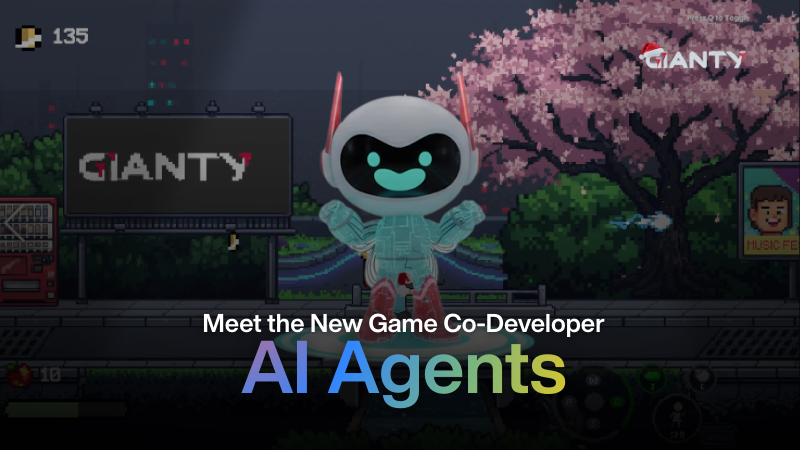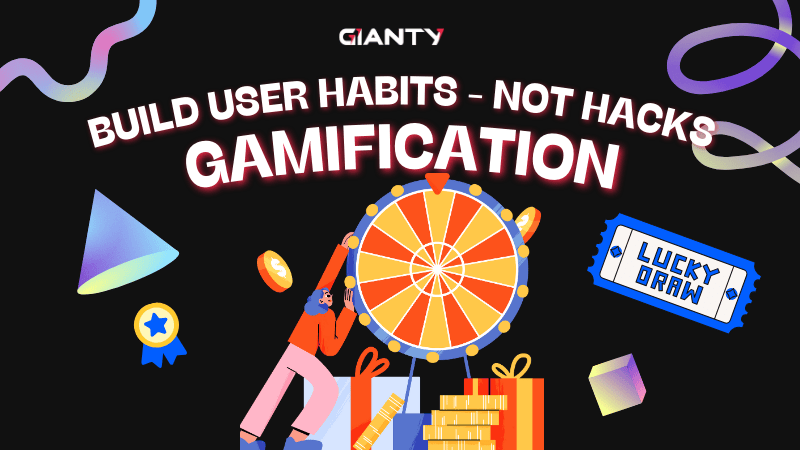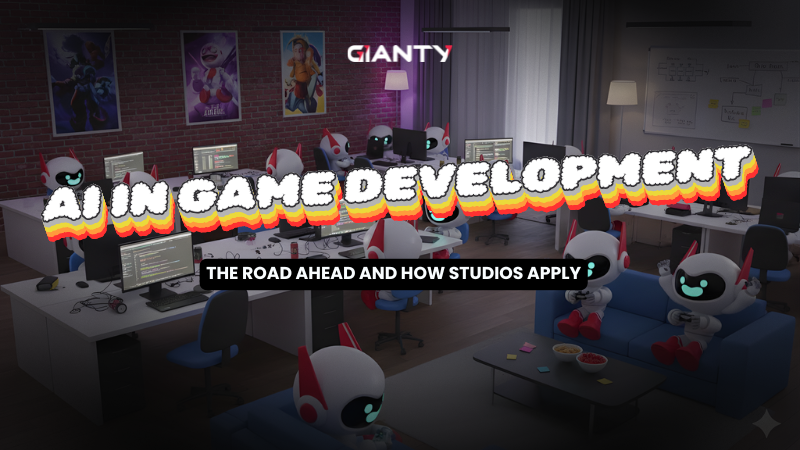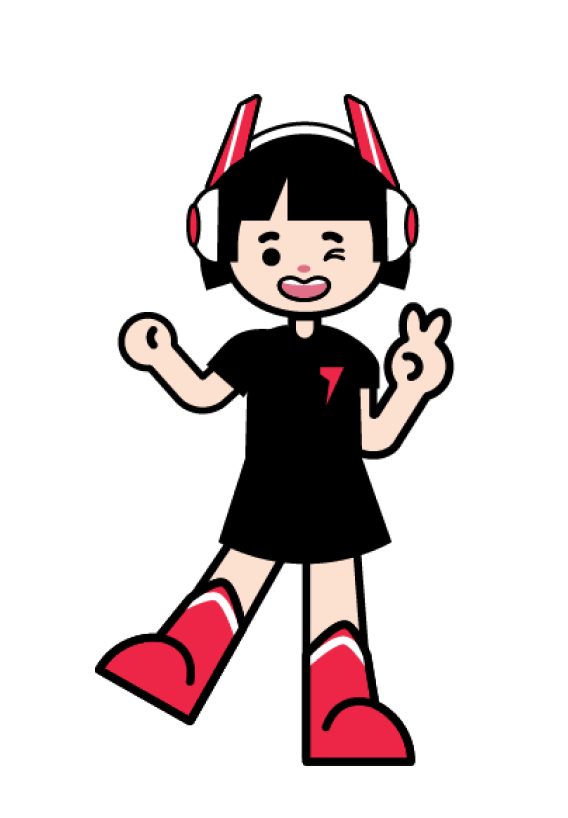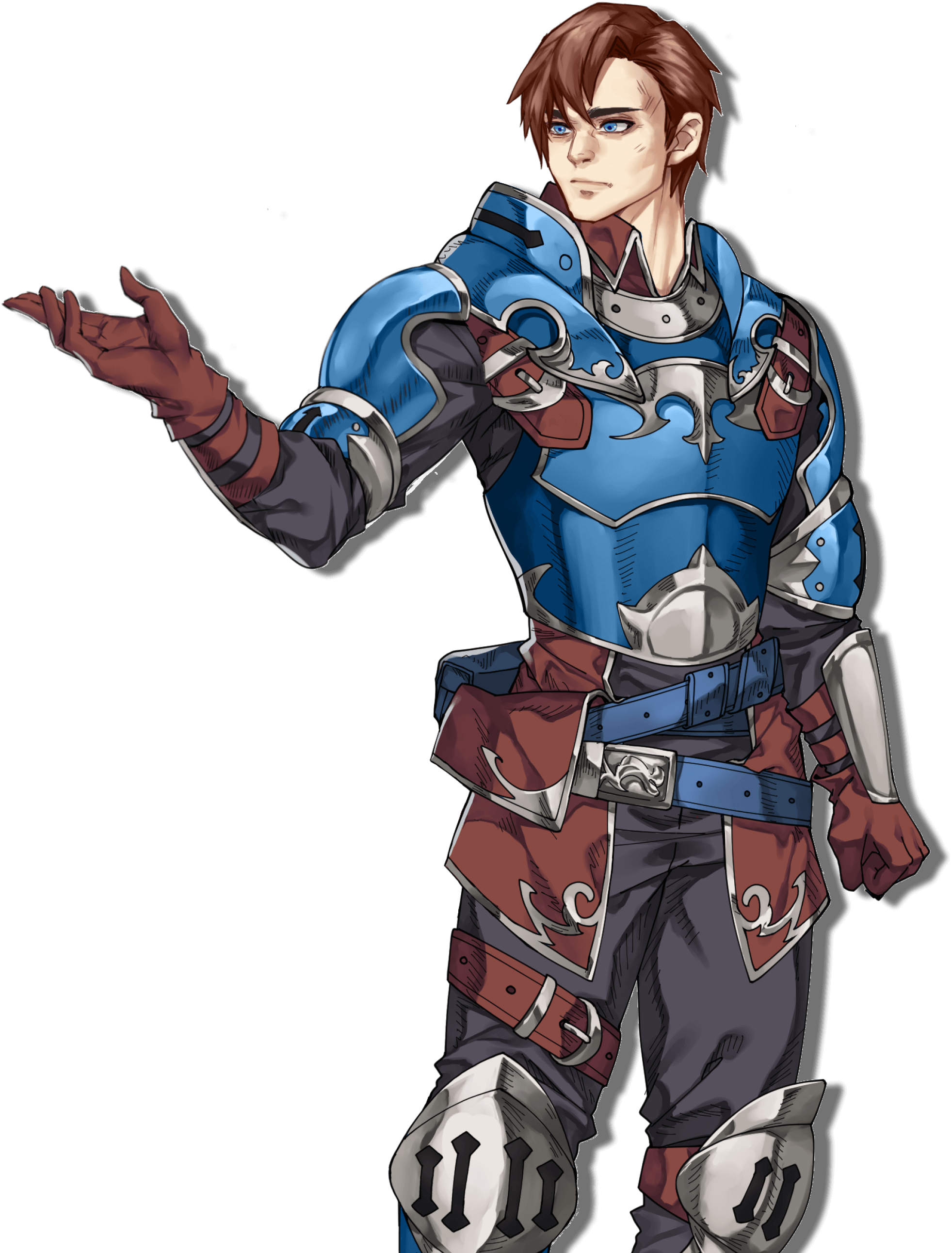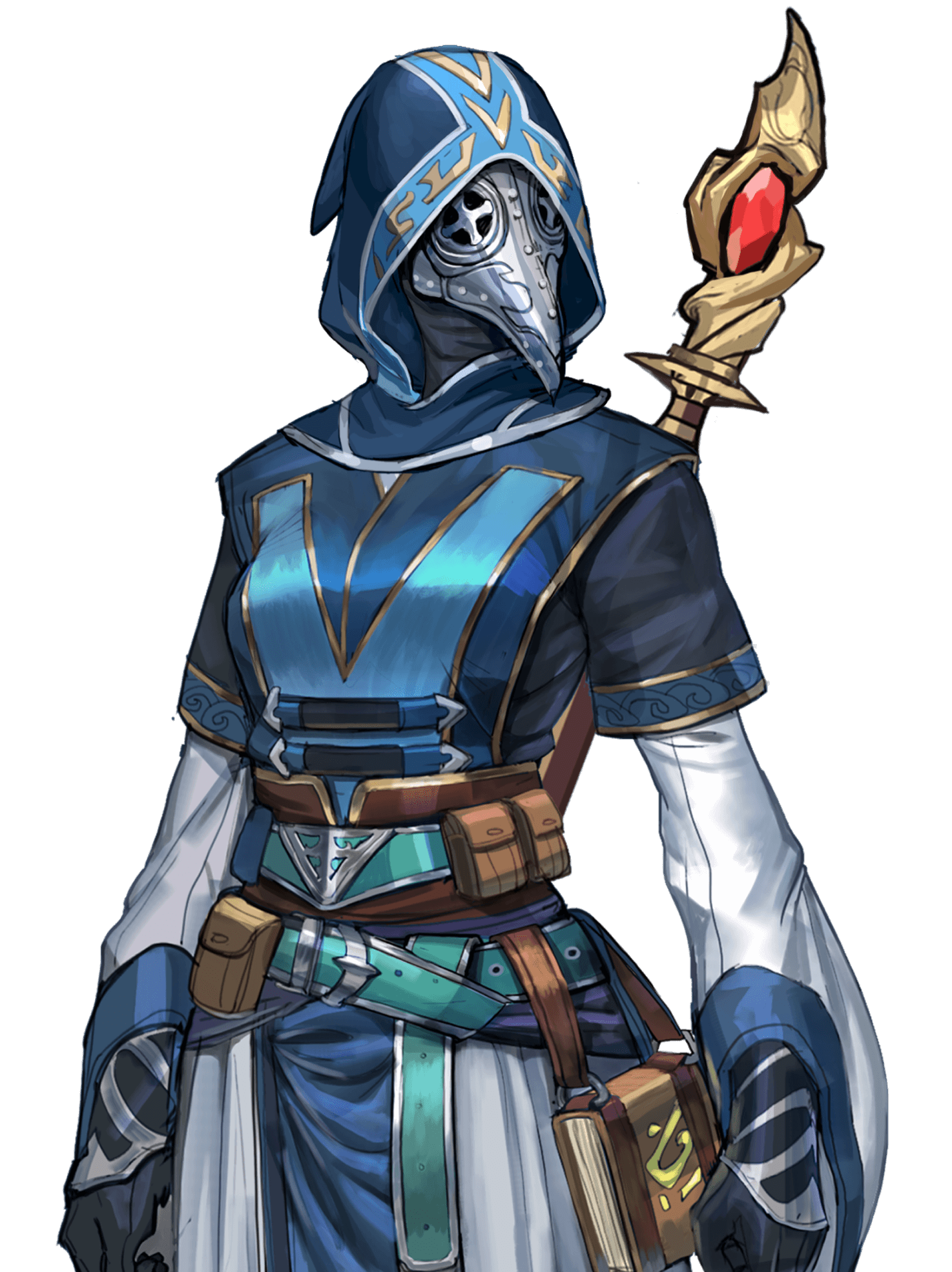Did you know that over 50% of games released on Steam are built with Unity? This powerful, cross-platform engine has become a cornerstone of modern game development, fueling everything from indie hits to AAA mobile titles.
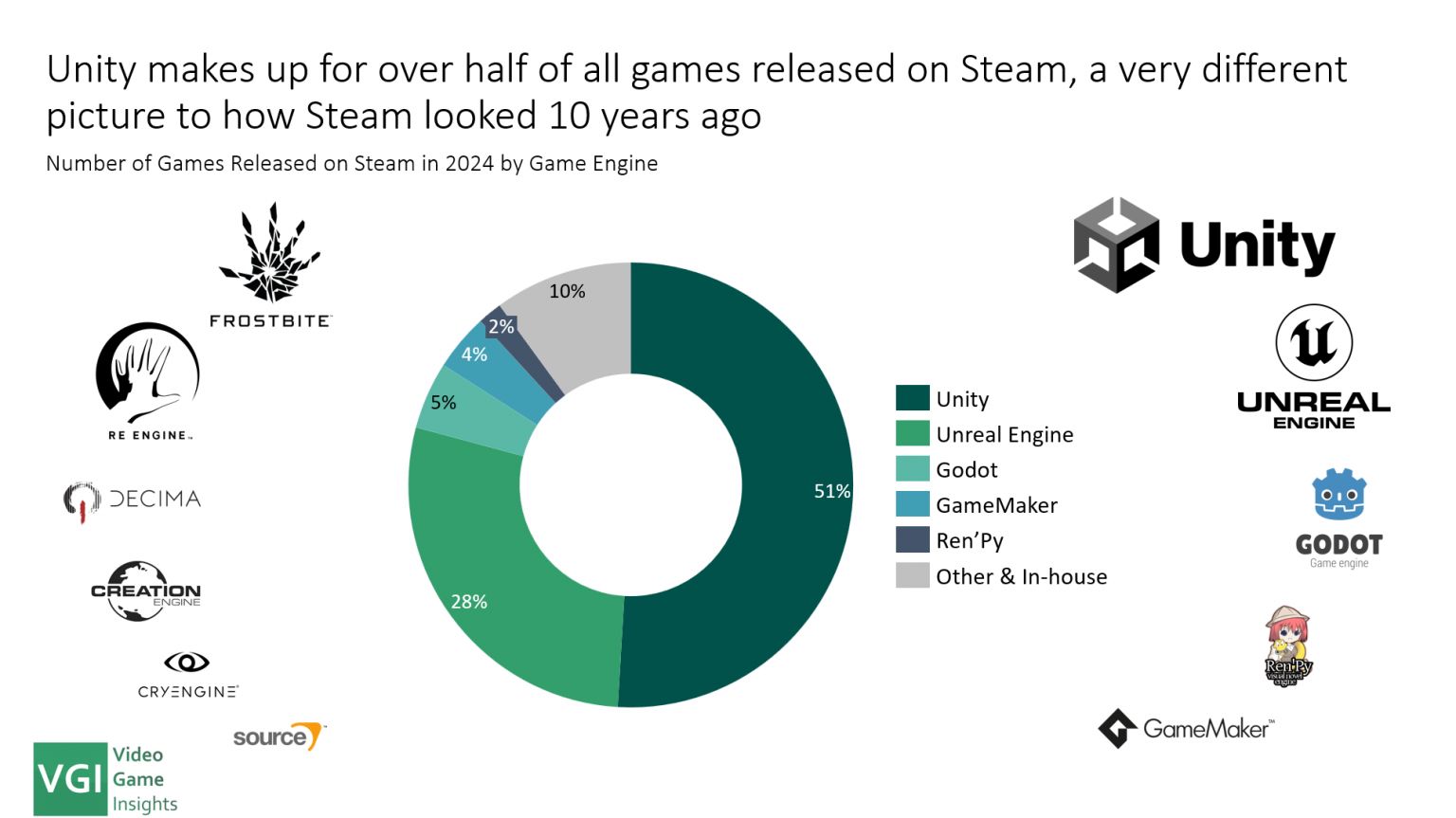
But Unity’s influence extends far beyond gaming; it’s also widely used in industries like architecture, automotive, healthcare, and film for immersive simulations, training apps, and interactive experiences.
As demand for diverse digital content grows, businesses are increasingly turning to outsource Unity game development services, driving the global game outsourcing services market toward an estimated $9.04 billion by 2034.
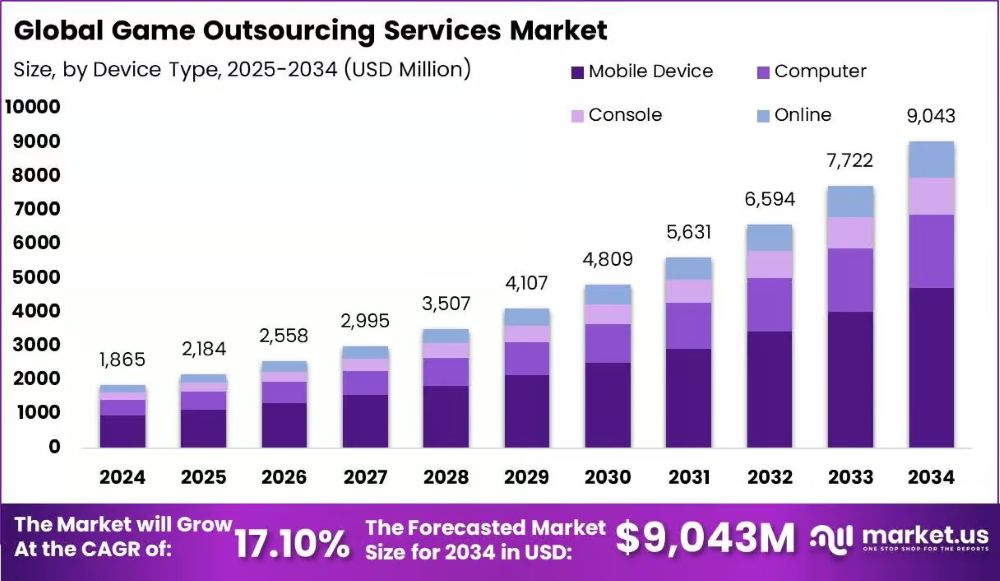
Why? Outsourcing Unity game development services accelerates time-to-market, ensures access to specialized talents, and provides the flexibility to scale development teams efficiently without compromising quality.
In this post, we’ll guide you through the essentials of outsourcing Unity game development, what to look for, how to choose the right partner, and best practices to ensure a successful collaboration.
What Types of Games Use Unity?
Being one of the most versatile and widely adopted game engines in the world, Unity powers a broad spectrum of game genres and formats:
- 2D Games: Unity offers robust 2D development tools, making it a top choice for side-scrollers, puzzle games, and platformers. Its efficient sprite management and animation systems help developers quickly bring their 2D ideas to life.
- 3D Games: With powerful rendering capabilities and support for advanced lighting and physics, Unity is widely used to build immersive 3D experiences across genres, from adventure to racing and shooters.
- Mobile Games: Unity’s cross-platform capabilities and performance optimization tools make it ideal for mobile development. Many top-grossing games on iOS and Android were built with Unity.
- VR/AR Games: Unity is a leader in virtual and augmented reality development, offering built-in support for major platforms like Oculus. Its flexible environment helps developers create highly interactive and immersive VR/AR games and experiences.
- Multiplayer Games: With support for real-life networking, Unity enables developers to build both casual and competitive multiplayer games. Services like Unity’s Netcode and integration with third-party solutions allow for scalable online experiences.
- Console and PC Games: Unity supports publishing to major consoley like PlayStation, Xbob and NintendoSwitch, as well as PC platforms via Windows, macOS, and Linus. Many indie and mid-size studios use it for full-featured desktop and console titles.
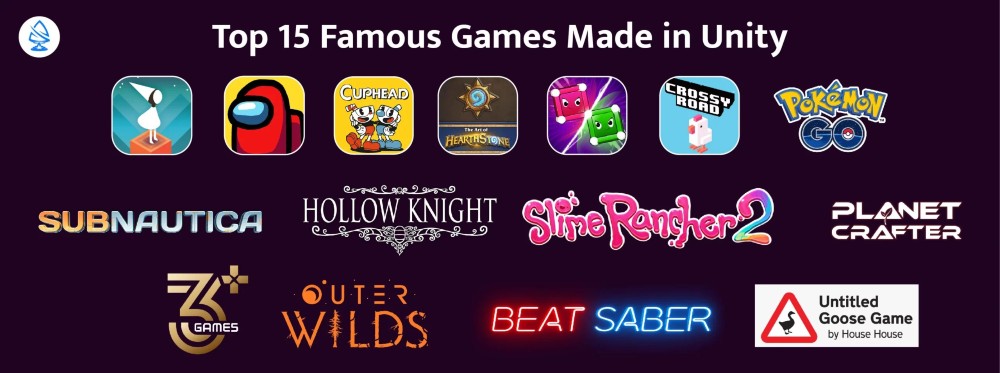
Understanding the Benefits of Outsourcing Unity Game Development Services
Outsourcing Unity game development services helps studios cut costs, access expert talent, and streamline multi-platform delivery. It allows businesses to focus on core growth while reducing risks, accelerating timelines, and staying current with the latest engine innovations.
That being especially important now that 88% of studios with more than 50 people build cross-platform games, which is one of Unity’s strengths.
- Expertise in Unity’s evolving tech: Access specialists proficient in Unity-specific systems like ECS, DOTS, URP/HDRP, and AR/VR toolkits.
- Deep cross-platform Unity optimization: Teams skilled at leveraging Unity’s multi-platform pipeline for seamless builds across mobile, PC, consoles, and VR/AR devices.
- Unity Asset Store integration: Experienced developers know how to efficiently customize and integrate Unity Asset Store packages to speed development.
- Unity Services mastery: Outsourced teams can expertly implement Unity’s built-in services like Analytics, Ads, Multiplayer, and Cloud Build for smoother development and LiveOps.
- Staying current with Unity updates: Dedicated Unity teams quickly adopt and apply the latest Unity engine features and best practices.
What to Look for in a Unity Game Development Partner
Outsourcing Unity game development services can be a game-changer – but only with the right partner. To ensure your vision translates into a compelling, high-performance game, here’s what you should look for when evaluating Unity development studios or service providers:
1. Technical Game Development Expertise
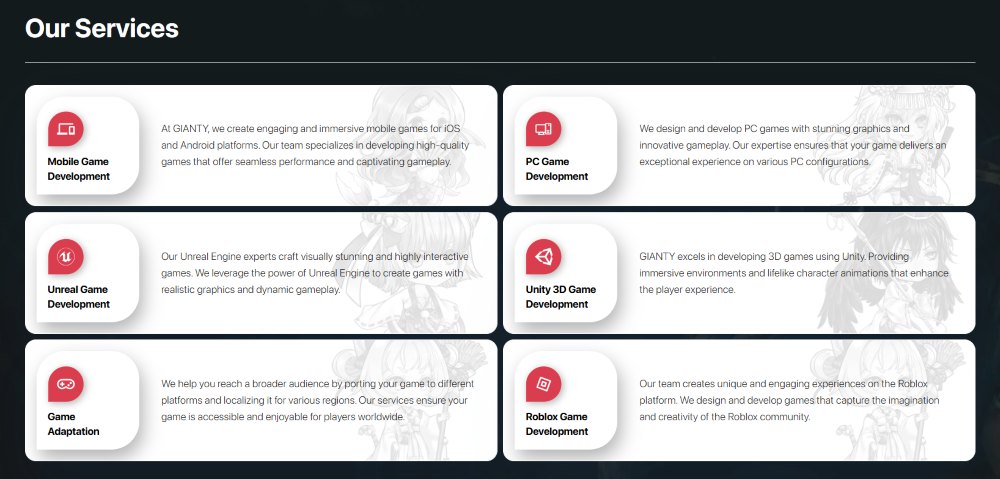
Your partner should demonstrate deep technical proficiency specific to game development using Unity, including:
- Mastery of core gameplay systems: input handling, physics, animation, and UI/UX.
- Experience with performance optimization techniques, including ECS/DOTS for scalable games.
- Knowledge of platform-specific development (mobile, PC, console, VR/AR).
- Proficiency in multiplayer frameworks, if applicable.
2. Game-Focused Portfolio
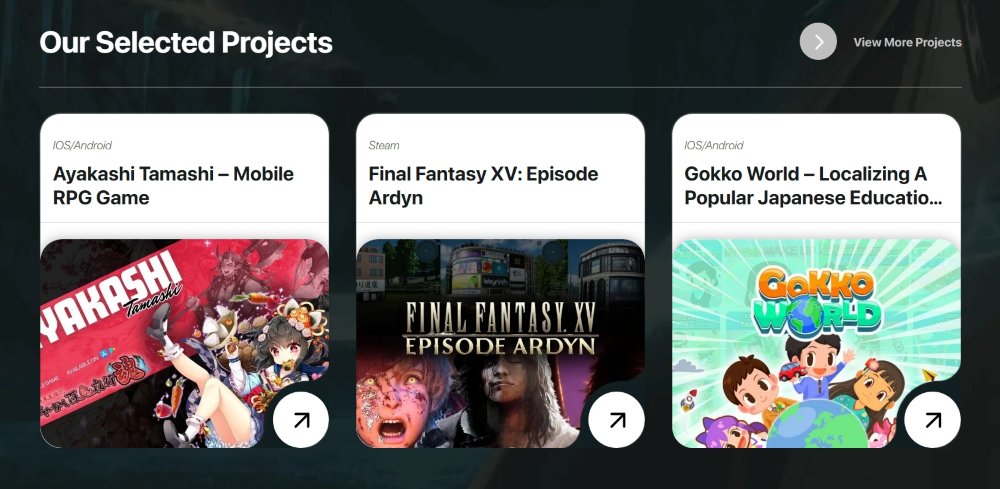
Review their previous game projects with a critical eye. Look for:
- A variety of genres (FPS, RPG, hyper-casual, strategy, etc.) to gauge versatility.
- Successfully published games on relevant platforms (Steam, App Store, PlayStation, etc.).
- Projects that match your scope, art style, or gameplay mechanics.
- Evidence of innovation in gameplay systems, AI, or monetization features.
3. Game Production Process & Communication
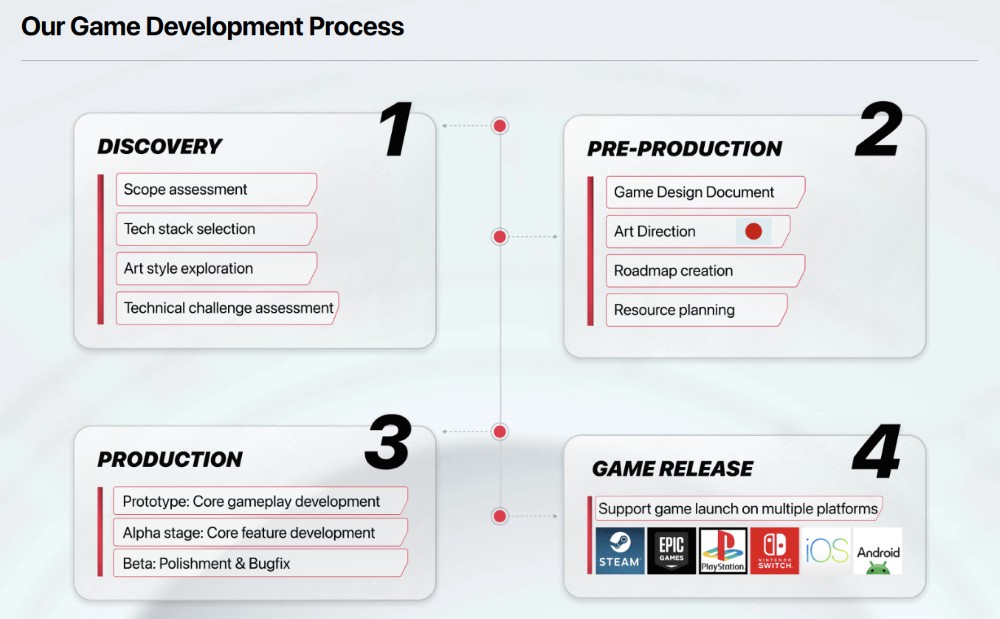
Game development is iterative and fast-moving. Your partner should offer:
- Agile workflows that support sprints, milestones, and prototyping.
- Clear communication channels for feedback and iteration (Slack, Discord, Jira, etc.).
- A team that understands the importance of player feedback loops and playtesting.
- Cultural alignment and a collaborative mindset to match your creative vision.
4. Engine and Tooling Integration
Games often rely on a stack of tools beyond Unity. Look for:
- Experience integrating third-party tools like Unity Gaming Services.
- Familiarity with version control (e.g., Git) and CI/CD pipelines for game builds.
- Ability to work with asset management tools and pipelines (e.g., Unity Asset Bundles).
- Comfort with art and audio integration workflows across disciplines.
5. Cost-Effective, Outcome-Oriented Delivery
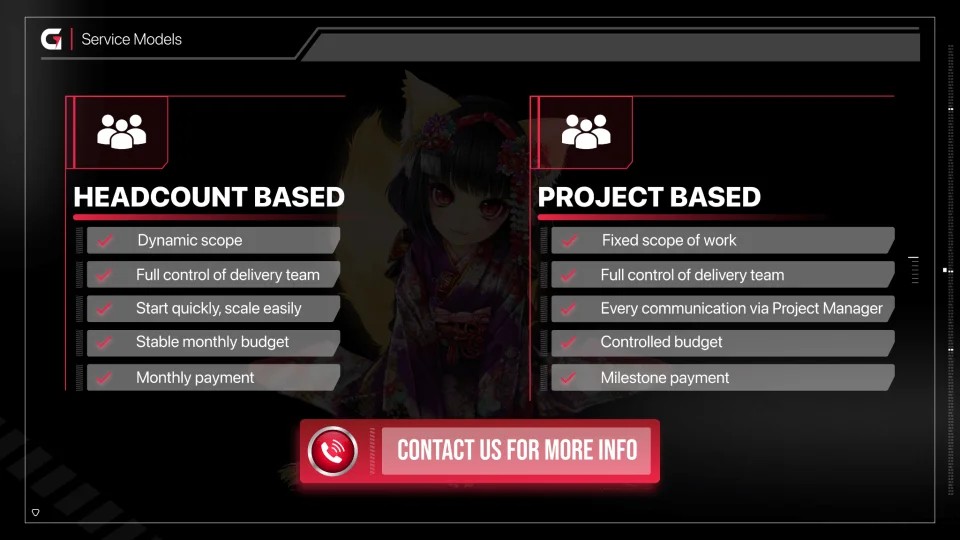
Value matters more than the lowest price. Look for:
- Transparent pricing models suited to your project’s needs (fixed scope, dedicated team, or hybrid).
- Proven ability to meet milestones and deliver high-quality game builds on time.
- Alignment on KPIs like retention, monetization, player engagement, or launch-readiness.
6. IP Protection and Game Security
If your games involve critical intellectual property, ensure:
- Signed NDAs and clear contracts defining IP ownership and usage rights.
- Secure handling of source code, game assets, and documentation.
- Experience working with publishers or platforms with strict security/compliance guidelines.
Case Studies that Highlight GIANTY’s Experience With Unity
GOKEN
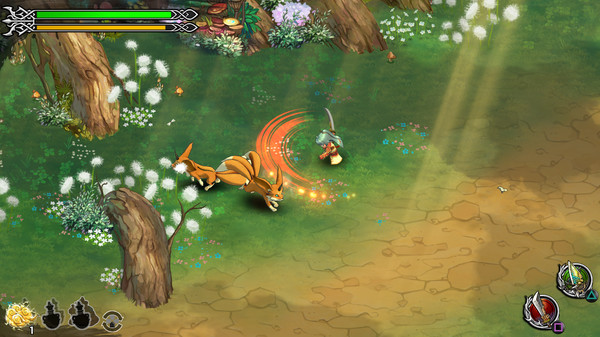
- Overview: GOKEN is a hack-and-slash action RPG with nostalgic visuals and modern mechanics, including real-time combat and a unique tattoo-based progression system.
- Engine & GIANTY’s Role: Fully developed in Unity by GIANTY, showcasing their expertise in open-world design, input systems, scene management, and cross-platform optimization.
- Platforms: Available on PC (Steam) and Nintendo Switch.
How to Hire the Right Unity Game Development Partner
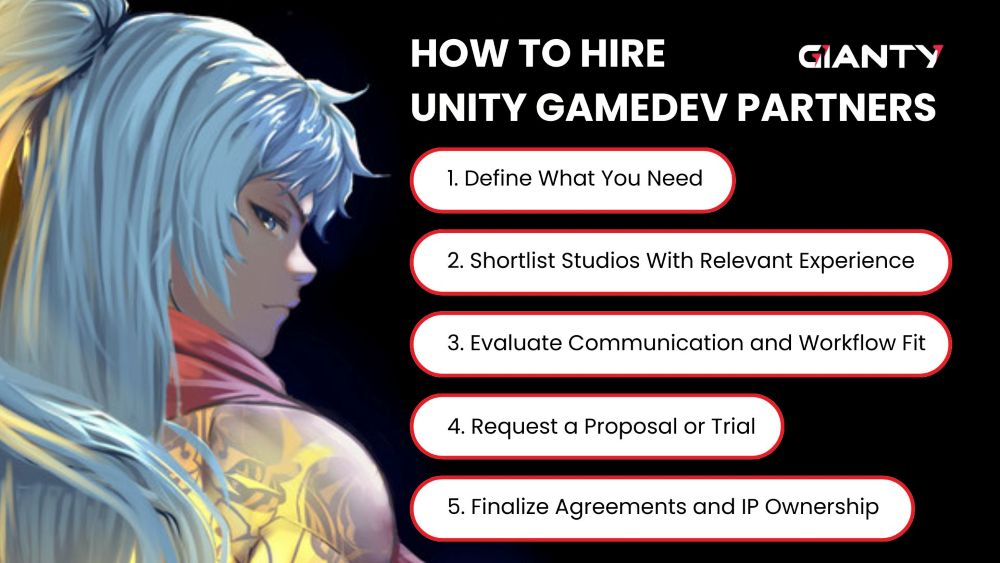
Hiring the right Unity development team means finding a partner who not only understands Unity’s technical side but also aligns with your creative vision and production goals. Here’s how to do it right:
1. Define What You Need
Start by outlining the basics of your project: scope, target platforms, timeline, and budget. This helps you internally clarify what kind of partner or specialist you’re looking for – whether it’s a full-service studio, a dedicated Unity engineer, or a niche technical expert.
2. Shortlist Studios With Relevant Experience
Look for Unity teams that have:
- A strong portfolio with completed games in your target genre/platform
- Technical expertise in features you need (e.g., multiplayer, AR/VR, procedural content)
- Positive reviews, case studies, or repeat clients
If the capabilities you’re looking for aren’t listed, it’s worth reaching out to studios for clarification. You might find GIANTY has the right experience. We are happy to tell you more.
3. Evaluate Communication and Workflow Fit
Beyond skills, collaboration matters. During early conversations, assess:
- Communication, responsiveness, and style
- Time zone overlap and availability
- Familiarity with tools like Jira, Slack, or Git
- Willingness to integrate into your workflow or pipeline
4. Request a Proposal or Trial
Now it’s time to request a proposal. Most reputable Unity agencies will:
- Provide a detailed development plan with timelines and pricing
- Recommend a shortlist of developers (for staff augmentation), including their CVs, experience, and availability
- Or present a proposed full project team (developers, artists, QA, PMs) matched to your project’s scope
You can then review and approve specific candidates or team structures before work begins. For high-stakes projects, consider a small paid test (e.g., prototype or feature build) to assess capabilities in action.
5. Finalize Agreements and IP Ownership
Ensure you have strong contracts in place that cover:
- IP rights and ownership of code/assets
- NDA and confidentiality terms
- Milestone payments, deliverables, and timelines
- Data protection and security protocols
- Post-launch support (if applicable)
After the NDA is in place, you can safely share more detailed documents – such as a full Game Design Document (GDD) – if the project scope requires it. For large or long-term engagements, this helps align expectations and technical planning.
Key Risks and How to Mitigate Them
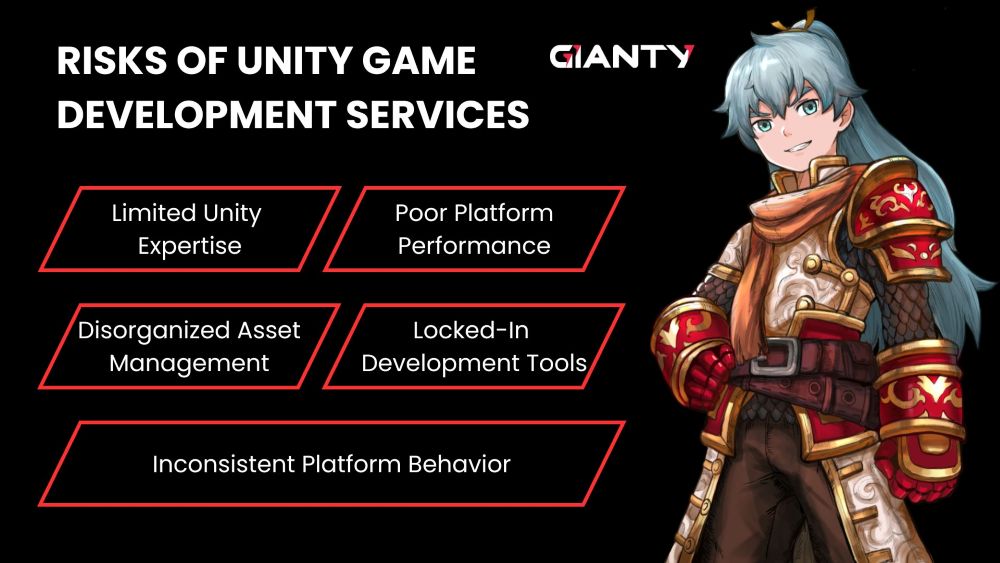
Outsourcing Unity game development services offers major advantages, but also comes with specific risks tied to Unity’s complexity, rapid evolution, and multi-platform nature. Here are the most common issues and how to stay ahead of them:
1. Shallow Unity Expertise
Many teams claim Unity experience, but lack depth in current systems like ECS/DOTS, Addressables, or multiplayer frameworks. This can lead to architectural problems or outdated implementations.
- Vet candidates for Unity-specific experience and the current version use
- Ask for relevant case studies, not just generic Unity projects
2. Poor Platform Optimization
Cross-platform builds are one of Unity’s strengths, but each platform (mobile, console, VR) has unique requirements. Without specialized knowledge, games may suffer from performance issues or bloated builds.
- Confirm platform-specific optimization experience
- Request sample builds or performance benchmarks when possible
3. Weak Asset and Scene Management
Misuse of prefabs, addressables, or asset pipelines can result in a messy, fragile project structure that’s hard to scale or maintain.
- Establish technical standards early (e.g., memory limits, prefab guidelines)
- Ensure version control and modular scene structures are in place
4. Locked-in Workflows or Proprietary Tools
Some studios rely heavily on custom tools or non-transferable setups, making handoff or internal scaling difficult later on.
- Ask about toolchain transparency and documentation
- Ensure source code and assets are fully accessible and portable
5. Inconsistent Cross-Platform Behavior
Without structured testing, Unity games may behave differently across platforms—causing issues during deployment.
- Require formal QA processes and multi-platform test coverage
- Include compatibility testing as part of milestone definitions.
Final Thoughts
Unity continues to be a leading force powering innovative games and interactive experiences across industries.
Unity game development services offer businesses a strategic advantage by combining cost efficiency, specialized expertise, and scalable resources to accelerate time-to-market without compromising quality.
Looking for a trusted partner with expertise in Unity? Send us a message and let’s talk!
—–
FAQs
1. What types of Unity games can be developed through outsourcing?
Outsourcing covers a wide range of Unity game development services– from 2D/3D mobile games and multiplayer online games to AR/VR experiences and cross-platform titles. Whether it’s casual games, educational apps, or large-scale RPGs, outsourcing gives you access to specialized skills for any genre or platform.
2. Is outsourcing Unity game development services better than building an in-house team?
It depends on many factors. These include the size and scope of your project, your budget, timeline, internal expertise, and long-term goals.
Outsourcing Unity game development services can offer flexibility, cost efficiency, and access to specialized talent – ideal for short-term or highly technical projects. On the other hand, building an in-house team may be better for long-term development, creative control, and deeper integration.
In some cases, external help may not be needed at all. The best approach depends on your specific needs.
3. Can I hire Unity developers for short-term or flexible projects?
Absolutely. Reputable development studios offer flexible contracts for short-term needs, MVPs, or specific modules. This is ideal if you’re testing a concept or need temporary development support. We’d be glad to discuss your project and how we might assist.
4. How do I integrate outsourced Unity developers into my existing team?
To ensure smooth collaboration, start by defining clear roles and responsibilities. Use tools like Slack or Jira for communication and project tracking. Provide onboarding documentation and schedule regular sync-ups to keep everyone aligned.
Feel free to reach out to us if you need more information or want to explore our Unity game development services. We’re here to help!





